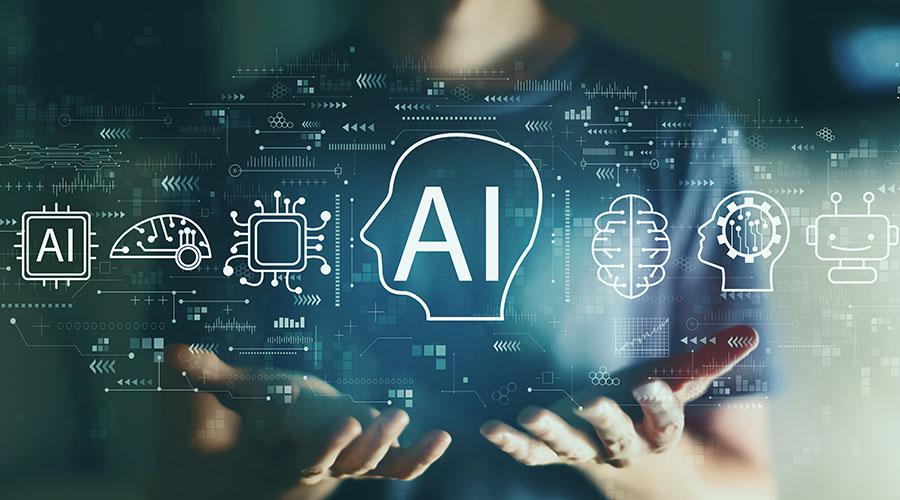Website designed with the B12 website builder. Create your own website today.
Start for free
Artificial Intelligence (AI) is no longer a distant dream or a technology confined to research labs. It is a transformative force that has permeated nearly every aspect of our lives, reshaping industries, redefining human interactions, and presenting new possibilities for the future. As AI continues to advance, its applications are expanding into areas that were once considered science fiction. This article delves into the current state of AI, its groundbreaking applications, and its potential to shape a future that balances innovation with ethical considerations.
---
AI in Everyday Life: Beyond the Basics
AI has seamlessly integrated into our daily routines, often without us realizing it. Virtual assistants like Siri and Alexa have redefined how we interact with technology, while recommendation algorithms on platforms like Netflix and Amazon have personalized our entertainment and shopping experiences. AI’s ability to analyze data and predict preferences has made it indispensable in fields like e-commerce, healthcare, and education.
For instance, AI-powered fitness apps monitor physical activity and offer personalized workout plans, while smart home devices use AI to optimize energy consumption. These innovations demonstrate how AI has become an integral part of improving convenience and efficiency in everyday life.
---
Groundbreaking Applications of AI
1. Healthcare Revolution
AI is transforming healthcare by enabling early diagnosis, personalized treatment, and efficient drug discovery. Machine learning models analyze medical data to detect diseases like cancer in their early stages, saving lives and reducing healthcare costs. AI-powered surgical robots enhance precision and reduce recovery times, while telemedicine platforms provide remote access to medical professionals, bridging gaps in healthcare delivery.
2. Autonomous Vehicles
The automotive industry is undergoing a revolution with AI at its core. Companies like Tesla, Waymo, and General Motors are developing self-driving cars that rely on AI algorithms to navigate complex environments, ensuring safety and efficiency. AI also optimizes traffic flow and reduces fuel consumption through smart transportation systems, contributing to sustainability.
3. Climate Change Mitigation
AI is playing a critical role in addressing climate change. Advanced algorithms analyze climate data to predict weather patterns, monitor deforestation, and optimize renewable energy sources. AI-powered systems help industries reduce their carbon footprint by improving energy efficiency and waste management.
4. Financial Innovation
In the financial sector, AI has become a game-changer. It powers robo-advisors that provide investment recommendations, detects fraudulent transactions in real-time, and automates repetitive tasks like data entry and report generation. By enhancing decision-making and minimizing risks, AI is redefining how financial institutions operate.
5. Education Transformation
AI is revolutionizing education by personalizing learning experiences. Adaptive learning platforms use AI to identify students’ strengths and weaknesses, tailoring lesson plans to their needs. Virtual tutors and AI-powered assessment tools make education more accessible and efficient, bridging the gap between learners and educators.
---
The Potential of Generative AI
Generative AI, exemplified by models like ChatGPT and DALL·E, is redefining creativity and content generation. These systems can write essays, compose music, design graphics, and even simulate conversations that feel human. Businesses are leveraging generative AI for marketing campaigns, content creation, and product design, drastically reducing time and costs.
Generative AI’s applications extend to gaming, where it creates immersive experiences by generating storylines, characters, and environments. In healthcare, it assists in generating molecular structures for drug discovery. The potential of generative AI is virtually limitless, and its influence is only expected to grow.
---
Challenges and Ethical Considerations
Despite its immense potential, AI presents significant challenges that must be addressed. The rapid advancement of AI raises ethical questions about privacy, security, and bias. For example, facial recognition systems have been criticized for inaccuracies and potential misuse, highlighting the need for robust regulations.
Job displacement is another pressing concern. As AI automates repetitive tasks, workers in certain industries may face unemployment, necessitating workforce reskilling and adaptation. Additionally, the potential misuse of AI for creating deepfakes, spreading misinformation, and conducting cyberattacks underscores the need for stringent ethical guidelines.
Governments and organizations must collaborate to establish a framework that promotes responsible AI development. Transparency in AI algorithms, accountability for outcomes, and equitable access to technology are essential for ensuring that AI serves humanity as a whole.
---
The Future of AI: Balancing Innovation and Responsibility
The future of AI is filled with possibilities that promise to reshape the world. As quantum computing becomes a reality, the integration of AI with quantum systems will unlock new frontiers in problem-solving, from optimizing supply chains to advancing scientific research. AI will also play a pivotal role in developing smart cities, where interconnected systems enhance urban living through efficient resource management, improved transportation, and enhanced public safety.
However, the path forward requires a balanced approach that considers both the opportunities and challenges of AI. By fostering innovation while addressing ethical concerns, society can ensure that AI remains a force for good, driving progress and improving the quality of life for people worldwide.
---
Conclusion
Artificial Intelligence is not just a technological advancement; it is a transformative force that has the potential to redefine how we live, work, and interact. From revolutionizing industries to addressing global challenges, AI’s impact is profound and far-reaching. As we continue to innovate, it is crucial to prioritize ethical considerations and ensure that AI is developed responsibly.
The future of AI is a shared journey, one that demands collaboration, transparency, and accountability. By embracing this journey, humanity can harness the power of AI to create a better, more equitable, and sustainable world.